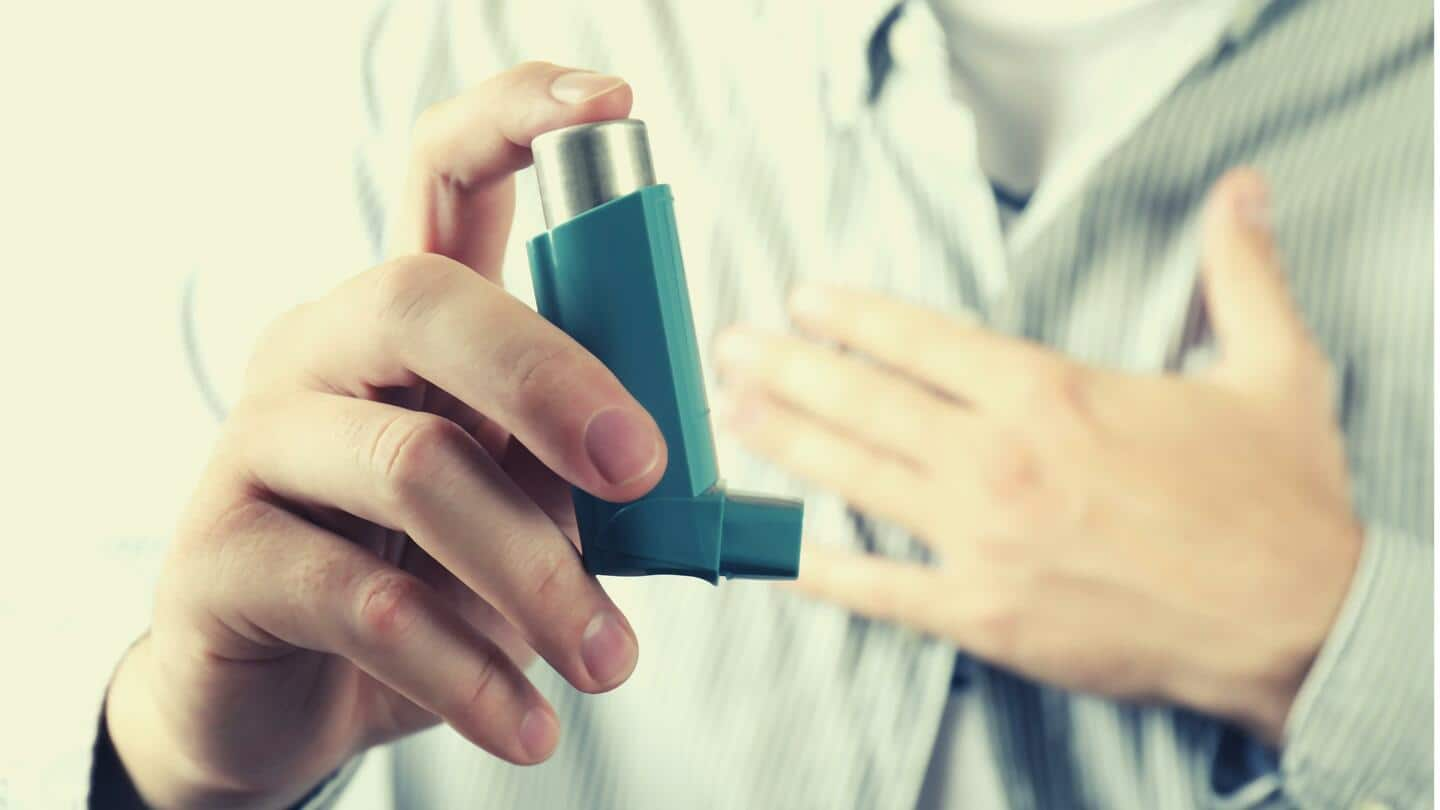
Trouble breathing in winter? Here's all about cold-induced asthma
What's the story
Feeling shortness of breath when you haven't even involved yourself in strenuous exercise?
Well, if you have asthma, the cold weather may trigger your asthma symptoms.
When the temperature dips, the air becomes dry, and this dryness can trigger asthma attacks.
Read on to know what causes cold-induced asthma, its symptoms and how to prevent the triggers during winter months.
Overview
What is cold-induced asthma?
Asthma is a chronic disease and is one of the major non-communicable diseases, according to the World Health Organization (WHO).
Several factors could trigger the symptoms of asthma.
One such trigger is inhaling cold, dry air during the winter season.
This is termed cold-induced asthma or winter asthma.
In this, airway muscles constrict and mucus accumulates, giving rise to breathing problems.
Symptoms
What are the signs?
Common symptoms include shortness of breath, tightness in the chest, coughing, chest pain, and wheezing.
These symptoms vary from person to person. Some may experience long-lasting symptoms, while others for a short while.
The symptoms of cold-induced asthma are triggered when a person is exposed to cold and dry air.
In most cases, they subside when the affected person moves to a warmer place.
Causes
What causes winter asthma?
The cold, dry winter air is the leading cause of winter asthma.
The weather causes your airways to constrict, triggering asthma symptoms.
Exercising in the cold outdoor air can worsen the situation.
Also, the concentration level of outdoor pollutants that can trigger asthma symptoms can exacerbate asthma attacks.
Changes in the atmospheric nitrogen oxide and oxygen concentration can also worsen asthma symptoms.
Connection
The link between cold air and asthma
When the temperature lowers down, the air becomes too dry, and it causes difficulty in breathing for people with asthma.
This happens because when we breathe cold air, the thin layer of fluid lined inside our airways evaporates. It evaporates faster than it is replaced.
When our airways are dry, they become irritated and swollen, which in turn triggers asthma symptoms.
Prevention
How to prevent it?
The best way to prevent a cold-induced asthma attack is by staying indoors during winter.
Inhaling hot water steam can give instant relief from shortness of breath.
It is also crucial to take your asthma meds as prescribed by your doctor.
Wearing a warm scarf around your nose and mouth would help humidify and warm the air you breathe.
Also, keep your inhaler handy.